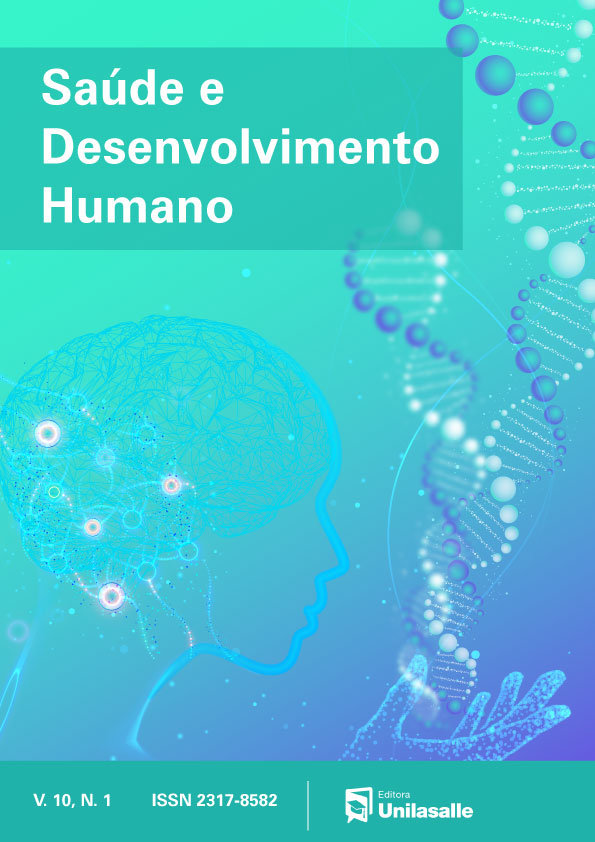Estresse oxidativo e fenilcetonúria: uma revisão integrativa
DOI:
https://doi.org/10.18316/sdh.v10i1.8280Palavras-chave:
ROS, PKU, Fenilalanina, Danos NeurológicosResumo
A fenilcetonúria é uma doença autossômica recessiva. É causada por um erro inato que ocorre em indivíduos onde há uma alteração no gene 12q22-q24.2 do cromossomo PAH, que codifica a fenilalanina hidroxilase. Também conhecida como PKU, a patologia consiste na ausência dessa enzima ou na falta de sua plena funcionalidade, que pode ser detectada nos primeiros dias de vida. O tratamento da PKU é essencialmente dietético e deve ser iniciado assim que for diagnosticado. A restrição alimentar de indivíduos fenilcetonúricos é extensa, baseada em uma dieta limitada que oferece baixo teor ou isento de fenilalanina. A diminuição dos níveis de fenilalanina no sangue visa proteger o paciente de danos neurológicos causados por níveis elevados desse aminoácido. Comumente, as dietas são baseadas em frutas e vegetais com baixos níveis de Phe acompanhados de fórmulas alimentares para atingir a ingestão proteica necessária. Com base em estudos científicos, há evidências de que a dieta restritiva, à qual esses pacientes têm sido submetidos, resulta na diminuição da capacidade antioxidante do organismo e, consequentemente, contribui para o aumento do estresse oxidativo causado pela presença de espécies reativas de oxigênio. Assim, o objetivo do presente estudo foi realizar uma revisão integrativa baseada em estudos científicos sobre a correlação entre estresse oxidativo em pacientes fenilcetonúricos e patologia. A análise dos estudos selecionados mostrou forte correlação entre estresse oxidativo e distúrbios neurológicos em indivíduos diagnosticados com PKU, sendo mais comum em pacientes com diagnóstico tardio, mostrando que a dieta restritiva é um fator essencial na proteção dos pacientes.Downloads
Publicado
2022-03-08
Edição
Seção
Artigos de Revisão
Licença
Autores que submetem seus manuscritos para serem publicados nesta revista concordam com os seguintes termos:
- Autores mantêm os direitos autorais e concedem à revista o direito de primeira publicação, com o trabalho simultaneamente licenciado sob a Licença Creative Commons Attribution que permite o compartilhamento do trabalho com reconhecimento da autoria e publicação inicial nesta revista.
- Em virtude dos artigos aparecerem nesta revista de acesso público, os artigos são de uso gratuito, com atribuições próprias, em aplicações educacionais e não-comerciais.
- Os autores concordam com os termos da Declaração de Direito Autoral, que se aplicará a esta submissão caso seja publicada nesta revista (comentários ao editor podem ser incluídos a seguir). E que anexam declaração assinada que todos os autores leram o documento a ser submetido e que aceitam os termos desta revista.

Os trabalhos publicados na Revista Saúde e Desenvolvimento Humano de ISSN 2317-8582 está licenciado com uma Licença Creative Commons - Atribuição-NãoComercial 4.0 Internacional.
Baseado no trabalho disponível em http://revistas.unilasalle.edu.br/index.php/saude_desenvolvimento/.


